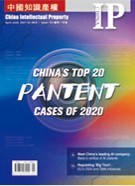Docket numbers of the cases in the first instance: No. 232, 233, 234, first instance (初), civil case (民), (2018) Nanjing Intermediate People’s Court (苏01)
Docket numbers of the cases in the second instance: No. 732, 733, 734 (Part 1), second instance (终), civil case (民), (2018) IPR Division of the Supreme People's Court (最高法知)
[Prefatory Syllabus]
Regarding the application for behavior preservation measures prohibiting application for enforcement of the judgment of an extraterritorial court, the people’s court shall consider the impact of the respondent’s application for enforcement of the judgments of an extraterritorial court on the litigation in China, and make a comprehensive judgment on multiple factors such as whether it is necessary to adopt behavior preservation measures, whether the damage to the applicant caused by the failure to adopt behavior preservation measures exceeds that to the respondent caused by the adoption of such measures, whether public interest is compromised due to the adoption of behavior preservation measures and whether the adoption of behavior preservation measures complies with the principle of international comity.
[Basic Facts]
Appellant (Defendant in the cases in the first instance): Conversant Wireless Licensing S.à.r.l (hereinafter: “Conversant”)
Appellee (Plaintiff in the cases in the first instance): Huawei Technologies Co., Ltd., Huawei Device Co., Ltd., and Huawei Software Technologies Co., Ltd. (collectively, “Huawei Companies”)
In January 2018, Huawei filed the case with Nanjing Intermediate People’s Court of Jiangsu Province, requesting confirmation of non-infringement of three Chinese patent rights of Conversant and the licensing rates for standard essential patents (SEPs) in China. In April 2018, to counter Huawei’s lawsuit, Conversant filed a patent infringement lawsuit with a court in Dusseldorf, Germany, requesting an order to stop Huawei’s infringement acts and a compensation for losses. On September 16, 2019, the first-instance court determined the licensing rates of SEPs for Huawei, its Chinese affiliates and Conversant. Conversant refused to accept the verdict of first instance, and appealed to the Supreme People’s Court.
During the trial of the second instance by the Supreme People's Court, on August 27, 2020, the German court made first-instance verdict, ruling that Huawei and its German affiliates infringed on European patents of Conversant and issuing an order that prohibits Huawei and its German affiliates from providing, selling, using, importing or holding relevant mobile terminals for the above purposes, and that requires Huawei to destroy and recall infringing products. This sentence can be provisionally enforced after Conversant provides a guarantee of 2.4 million euros. The sentence holds that, the SEP licensing rate offer made by Conversant to Huawei does not violate the fair, reasonable and non-discriminatory (FRAND) principles. The SEP licensing rate offer for multi-mode 2G/3G/4G mobile terminal products in Conversant's aforementioned offer is about 18.3 times of the Chinese SEP licensing rate determined in first-instance judgments of three cases. On the same day, Huawei filed an application for behavior preservation with the Supreme People's Court, requesting to prohibit Conversant from applying for enforcement of the German court’s judgment before Supreme People's Court makes the final judgment.
The following ruling of behavior preservation is made by the Supreme People’s Court on the basis of requiring Huawei to provide guarantees: Prior to the final judgment of the Supreme People's Court, Conversant shall not apply for enforcement of the German court’s judgment mentioned above. In case of violation of this ruling, a fine of RMB 1 million per day, cumulative on a daily basis, will be imposed from the date when such violation occurs. The ruling was served on the same day. Conversant filed the reconsideration within the reconsideration period. After the Supreme People's Court organized a hearing for both parties, it ruled against Conversant's request for reconsideration.
[Typical Significance]
As the first adjudication of behavior preservation with the nature of “anti-suit injunction” in China’s intellectual property litigations, this case clarifies the necessity, degree of damage, adaptability, public interest and international comity and other factors that should be taken into account at the time of adoption of behavior preservation measures prohibiting application for enforcement of the judgment of an extraterritorial court, first explores the daily fine system, and preliminarily constructs the path of judicial practice of “anti-suit injunction” in China. The ruling in this case enabled the parties to finally reach a global package settlement agreement, putting an end to parallel litigations in many countries worldwide and achieving good legal and social effects.




